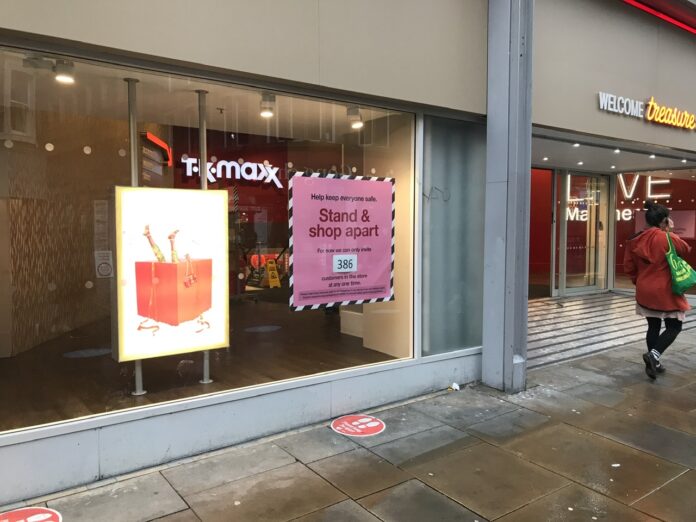The Office for National Statistics (ONS) said retail sales volumes fell 8.2 percent last month against December 2020 after non-essential retailers shut their doors to customers.
Sales volumes were 5.5% lower than before the pandemic in February 2020 indicating that the impact of restrictions on the retail sector was not as large as that seen in April 2020 during the first full month of retail restrictions when sales fell by 22.2% when compared with levels before the pandemic.
All sectors saw a monthly decline in volume sales in January 2021 except for non-store retailers and food stores, who reported growth of 3.7% and 1.4% respectively when compared with December 2020.
Helen Dickinson, Chief Executive of the British Retail Consortium, said:
“England’s third lockdown cut retail spending this month, as high street footfall remained down by over three quarters. Large non-food stores saw their thirteenth month of decline, increasing the risk of yet more retail stores being permanently shuttered. January’s lockdown has hit non-essential retailers harder than in November, with the new variant hampering consumer confidence and leading customers to limit spending, especially on fashion and textiles. Meanwhile, retailers have invested heavily in their online offering and click and collect services to ensure shoppers will still be able to access vital goods.
“Reviving our economy requires unlocking pent up demand that sits untapped in people’s savings accounts. The chancellor should therefore focus on unleashing, not stifling, demand, thus supporting the millions of jobs the retail industry supports in communities across the UK. Sadly, retail has been overpaying tax for too long. The industry is 5% of the economy, yet pays 10% of business taxes – this is neither fair nor sustainable. If Government wants to avoid further administrations of otherwise viable businesses, it must provide those firms which have been hardest hit by the pandemic with the necessary support. This means extending the moratorium on aggressive debt enforcement, removing EU state aid caps on support grants, and providing targeted business rates support to those companies worst affected by the pandemic.”







